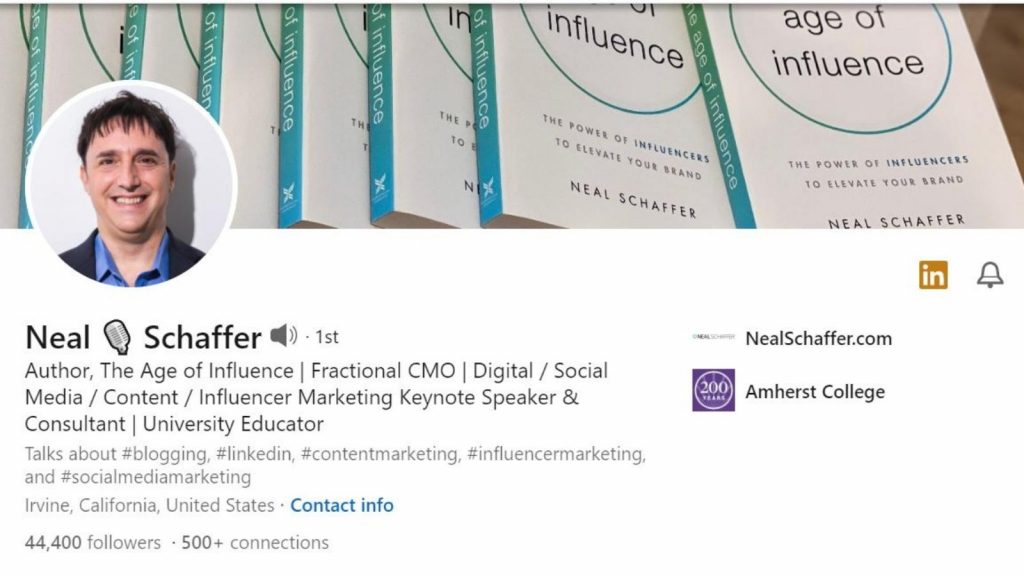Do you know what really makes social proof-proof? Today the social proof principle is no longer only about how many followers you may have on various social networks.
For this reason, social proof today is much more than having many followers. Let’s look at the definition of social proof as well.
Having more followers may be useful on a social network but it’s not everything anymore today. Did you know Social evidence is also known as Informational Social Influence?

Social influence is when people can influence other people on social media with their content. The content can be in the form of written words or video content. It can drive your brand mentions.
Table of Contents
What Is The Definition Of The Principle?
Social proof definition is a psychological and social phenomenon wherein people copy the actions of others in an attempt to undertake behavior in a given situation. The term was coined by Robert Cialdini in his 1984 book Influence: Science and Practice, and the concept is also known as informational social influence.
Wikipedia
This social proof definition is an effect caused by people on other people. This makes them do something. It could be reading a post, watching a video, signing up for email, or buying a product.
Therefore, there is no doubt this verification causes them to do something when being influenced!
How Can You Prove Your Social Proof Today?
Images – Images speak volumes when it comes to proving something. People are generally visual and they love to see how and why. It’s the old saying “Pictures paint a thousand words”.
Testimonials – People rely on testimonials all the time before making purchases today both online and offline. Do you remember the last time you asked a friend for a recommendation for something?
We do it all the time. According to David Melamed, “The Function of a Testimonial is to Assure People They Won’t Look Like A Fool By Trusting You. “ People defend their decision to trust you with the use of testimonials. They want to know others trusted you and that it worked out well for them.
Engagement – Engagement rates are key to having influence and lead to social proof. People love buying from those they trust and know. What better way than to engage with them? Engagement rates can be on social networks or right on your blog posts.
Engagements include likes, comments, replies, and shares on social networks or blog posts. (Reach is the percentage of people that actually see the posts). Your engagement rate is calculating what percentage of people who saw the post engaged with it.
Lisa, Inspire To Thrive
Social Shares – People love landing on a page or blog post when there are a lot of social shares. It gives the impression of perceived value.
Know What Others Are Saying About You For Social Proof
Use a social listening tool like Brand24 so you can stay on top of what others are saying about you. There have been several times I’ve been mentioned on posts and on social media that I was not aware of.
Therefore, engage in a post that you are mentioned in. It’s a great way to display that mention or citation on your website or on your social profiles.
Create Google alerts to see if there are other mentions on the web. (But Google Alerts do NOT show you social mentions.) It’s important today to stay on top of these things as you can’t be everywhere 24/7.
Show Off Your Social Proof – Social Proof Examples
Neal Scheffer does this the best! He does it on all of his social networks. You can see how he adds his authority to his bio.
And he often changes it as he gains more authority. The more places are featured, the more highlights can be shown on his bio.

Very smart! Likewise, think about those places that you have been featured on or mentioned. Then add them to your social profiles or about page for social proof.
You can’t share your social proof if you don’t know you have any. Remember it’s important to know what others are saying about you on social media and elsewhere.
Read what others have to say. Please Retweet your favorites right from here below!
Exactly! Social proof inspires trust, and trust is everything.
— Jennifer Bridges (@JenBridgesRD) July 26, 2022
Social proof is proof of concept. Positive 3rd party, customer or celebrity reviews wield powerful influence to drive purchase behavior.
— Rebekah Radice (@RebekahRadice) June 4, 2017
a must for all businesses. Seeing others experiences validates, creates desire (they have it, I want it) and reduces friction 😉🐨🙏
— Mike Kawula (@MikeKawula) June 4, 2017
What The Proof Principle Can Do For You
Adds Engagement – By having some social proof you may see more engagement on the social networks and on your blog or website. People like to engage with others that are engaging.
Makes sense right? It’s what I refer to as the “snowball effect” – the more social proof you have the more engagement you will get.
People Will Make Purchases – Indeed they will also make purchases from you if you can prove that an item or service will make their lives better in some way. They may read a testimonial about you or your services or products.
People want to know and trust others who they are are buying from or using your products or services.
Grow Your Audience More – Social proof will snowball once you begin to have traction with it. People love to engage with others who engage with them.
No one wants to engage with someone who does not engage back. Be engaging everywhere and you will experience a big difference.
How To Get Your Social Proof
Of course, you may be thinking “I don’t have any social proof yet, not little ole me.” It will take time but you can surely generate some social proof over time.
No one starts out blogging or content marketing with instant social proof. (Not even Neal Schaffer, sorry Neal!).
Ask for Reviews – People don’t mind giving reviews or testimonials if you have done some great work for them. You can review Inspire To Thrive here.
Give Testimonials – Give others proof first! Don’t wait for others to give you one. Be genuine, don’t just give them for giving them. Give testimonials or reviews to your mentors.
Engage, Engage, and Engage – I can’t say that enough. Answer people’s questions on social networks and on your blog. Respond to every comment. Help people with their problems and questions.
Keep your eyes and ears open – Listen on the web. Use a social listening tool to know what others are saying about you or your brand online.
Retweet Others and Share on Other Social Networks – People love when you share their content. Hence, it will help to get their share counts up too.
Conclusion: Why Proof from Socials are Needed for Your Brand
In today’s digital world, social proof is the heartbeat of a thriving brand. It’s the testimonials, reviews, and shares that show your audience you’re trusted and valued—building credibility without you saying a word.
People naturally lean toward what others endorse, so showcasing happy customers or influencer nods can tip the scales in your favor. On Inspire To Thrive, I’ve seen how a simple review or a glowing comment can spark connection and growth.
Embrace social proof—it’s not just a boost; it’s the bridge that turns curious visitors into loyal fans!
FAQ’s Understanding the Social Proof Principle
The social proof principle is a psychological concept where people copy the actions of others in an attempt to reflect correct behavior in a given situation. It is used in marketing to build trust and influence decisions.
Social proof works by leveraging testimonials, reviews, and case studies to show potential customers that others have had positive experiences with your brand. It helps reduce uncertainty and can encourage individuals to follow the crowd.
It’s crucial because it builds credibility and trust. When potential customers see that others trust and endorse your product, they’re more likely to feel confident about making a purchase themselves.
Examples include customer reviews, testimonials, celebrity endorsements, social media followers, and user-generated content. Each serves to demonstrate that others find value in a particular product or service.
Incorporate customer testimonials, display reviews prominently, showcase awards or recognitions, and include user-generated content. Highlight metrics such as number of customers served or social media followers to build credibility.
Social proof can significantly impact consumer behavior by reducing decision-making anxiety, increasing trust in a brand, and accelerating the purchasing process. Seeing others endorse a product often leads to higher conversion rates.
Social proof is about observing and emulating the behavior of others based on trust and credibility. Peer pressure often involves coercion or persuasion, pushing individuals towards certain behaviors due to perceived social expectations.
Negative social proof, such as negative reviews or endorsements, can harm brand reputation, leading to lost sales and diminished trust. It’s essential to manage and respond to negative feedback promptly.
You can encourage customers by asking for reviews, offering incentives for testimonials, creating a referral program, or engaging users on social media platforms to share their experiences.
- How to Hide Followers on Instagram from Others: Simple in 2026 - December 15, 2025
- Pinterest Marketing: 6 Secrets To Increasing Traffic - December 13, 2025
- Learn To Boss Your Digital Footprint Before It Starts Bossing You In 2026 - December 12, 2025




Back in the day I had lots of social proof. Both of my blogs were in the top 150,000 in the world (per Alexa; take that for what you will lol), I’d get lots of comments on my blogs and I had lots of subscribers who were regulars. I also made some money back then; not enough to be rich, but one never closes their eyes on income.
These days I get way fewer comments or visitors; Google Panda smacked me hard. My YouTube channels have never made it to 1,000 subscribers. Yet, there are days like today where I got a positive comments on two of my older videos, thanking me to telling them my story and giving them some advice they could use. It’s not overwhelming the masses, but I figure that any time I can touch someone positively I’ve done something good. I’m not sure that’s social proof of any kind, but I can live with it for now.
Hi Mitch, Oh yes, I see fewer comments as well these days. Traffic goes up and down. I’ve noticed fewer chats on social media networks especially Twitter as I was very active there for years. It seems less interacting there and elsewhere as I believe everything has become very fragmented and the algorithms for the sites are very finicky as well. Thanks for your input Mitch and have a great new week and month.
Hi Lisa,
Amazing stuff. Loved how different influencer shares their personal views about Social Proof.
To me, Social Proof is a great marketing material which helps others to understand that your products are genuine and people actually enjoy them.
You don’t always need money to get SP, if your product and service is excellent, you’ll automatically earn it.
Thanks for the share.
Hi Shafi, welcome to Inspire to Thrive. Thank you. I agree – you don’t need money to get social proof. It is something that is earned but not by dollars. You are welcome Shafi. I hope you have a great rest of the week.
Hi Lisa,
You’re right. Social proof is one powerful tool a lot of copywriters are using to increase their sales consistently.
Like Rebekah Radice rightly added, it’s an amazing proof of concept. When people see plenty of it on your sales letter, it confirms the fact that what you are teaching works.
Thanks for sharing.
Emenike
Love your post, the days of just buying some likes or followers to look more important are well and truly gone. I would be quite interested to know if you have any data on how social proof affects the SEO of your site. I believe there is a positive impact but it’s hard to base that on data as I don’t have a big enough sample size and there are so many variables at play.
Hi Chris, welcome to Inspire to Thrive. I Chris, I do believe there is a definite correlation and I will look around to see where I have read some case studies on it. Maybe I’ll do a future post on it as well. That sounds like a fun one. Thank you for coming by with this question and have a wonderful rest of the rest Chris.
Hey Lisa,
The psychology of social proof goes a long way.
I reminds me of my high school days. The average student wanted to be around and be like the popular kid. He or she got that status from social proof and this psychology carries over into our adulthood.
Engagement is key when it comes to this. The more you engage with others on your blog or on theirs, the more people will come to yours and eventually purchase something from you.
One thing I need to do on my blog is add testimonials. I consider this to be the icing on the cake. This is 3rd party validation and this is something picked up when I was doing network marketing.
Thanks for sharing Lisa! You’ve made some great points here!
Hi Sherman, I really like your analogy. It does amaze me though how a few big names will not engage no matter how often you comment at their place or on the social networks. I hope to never become like that…
But I would say the majority of folks do. Oh yes, testimonials are a great way to show some social proo Sherman. You could incorporate it in your about me pagae or if you have a services pages.
You are very welcome Sherman. I appreciate your coming by with your input on this topic. Have a wonderful weekend!
Hi Lisa,
Social proof is psychological. It is the bandwagon effect that says if something is popular, it must be good. That is psychological.
Janice PS I tweeted your article
Hi Janice, thank you. I like your point on it. Thanks for coming by and for the share. Have a great rest of your week!
Hi Lisa,
Social proof may or may not lead to social influence. Social proof is the potential generator that may lead to a certain result (social influence).
Since social proof is the potential generator while social influence is the potential result of that generator, to me it’s quite obvious that the two terms are different, not the same thing as suggested by some people such as Wikipedia’s editor that posted that definition.
Hi Adrian, I think social proof is about having proof of your social influence. You can’t have social proof if you don’t have the influence. But the influence could mean different things to different people. Some people may think it’s if someone purchases from you while others could say it’s how many times your posts or things are shared. It is definately not all black and white. Social proof could give the appearance of influence though. Good point Adrian! Have a good day and thanks for coming by.
I disagree with something from your reply: I think that you can have social proof without actually having influence. That’s why I said that social proof may or may not lead to influence.
There are tricks that may get you lots of social shares without you being an influencer. For example, several years ago one of my internet marketing blog posts got viral on Pinterest. Social proof, right? Influence, right? Wrong!
I used in that blog post a picture including a t-shirt with a very funny message related to an idea from my blog post. That picture got viral on Pinterest, not my blog post. It wasn’t shared because I was an influencer or my blog post was a great one. Nope. The picture was shared by ordinary people, some of them having no idea what internet marketing is or what my blog post was about.
In the case of an established influencer, the influence is the generator that generates the social proof. Gary Vaynerchuk publishes something and tons of people share it because it came from Gary V.
In the case of the other 99% of people (bloggers, internet marketers, etc), they aren’t real influencers still they get some kind of social proof using different methods. Scratch my back and I’ll scratch yours, funny pictures, quotes, paid shares, etc. Their case is somehow up-side-down: the social proof is the generator that may or may not eventually lead to the desired outcome: the influence. That’s how many influencers started.
So in the first instance you have no influence but only social proof. Social proof is the potential generator of the influence. Once you become an influencer (IF you become one), the things change dramatically (180 degrees) and the influence becomes the generator of social proof.
Adrian, I love your example here. I had that happen too on Pinterest and the pin was from a blog that is no longer around.
I love the “Potential generator of the influence”…. I think the social proof really increases the potential, would you agree with that?
Yes .
Hi Lisa,
You always come up with amazing articles for your audience. I’m thank for this post that you share with us & it give a unique info for Social Proof !!!
Thanks Monika. I do try. I’ve been hearing a lot about it and wanted to share. Thanks for coming by and have a great day!
Hey Lisa,
I’m glad you clarified Social Influencer and Social Proof in a comment above. I think many can easily confuse the two.
When I think of Social Proof, I think of the big name bloggers AND include those in my Community (you, Ryan, Sam, Donna, and more). These are the ones I see on social media every day. Whether they are tweeting, sharing on LinkedIn, Facebook, or Blogging, they are making themselves known and are highly respected. One may think Social Proof is all about the numbers, but you and I both know that’s a bunch of cow puckie. Followers can be bought. That’s definitely not social proof.
It’s interesting to read how others define Social Proof. I look forward to reading more of you comments.
Hope your walk went well today! Have a great weekend and chat soon!
Bren
Good morning Bren. Thank you. It is easy to confuse them or lump them together. Yes, excellent point how they can be bought. It’s more about the engagement and I think more sites are giving those kinds of stats now too. Maybe a follow up on that will come. Thanks for coming by Bren and the walk was great (though HOT). Off to the Pez factory on an adventure today. I hope you have a great day and stay cool down there!
Hey Lisa,
It’s an era of social media where people should build their presence.
It has become really important to craft a social proof which can let people know how successful you’re.
It’s not only about the business, it’s about building your personal brand.
Showcasing your social proof is a plus point. Flaunt what you have.
Thanks for bringing this concept.
~Ravi
Hi Ravi,
It surey is a new era with social media and influence has changed with it. People want to know you have some social proof so they know they content will be shared further out there. It takes time to build up too. It cannot be done overnight. Thanks for coming by Ravi. Have a great day.
Being social proof is not only about having an appealing profile picture with lavish car in background. It’s more about creating a good impression in visitor’s mind.
The best example of social proofing will be when someone visits the profile, reads bio, sees picture, checks posts (or tweets) and either creates a lead or makes a purchase.
Sounds too unreal but this is just my imagination May be some day this would be reality?
How does this compare with the phrase “social influencer” ? one and the same?
No, they are different in a way. Social influencer is someone who influences others. Social proof proves that you have the social influence. It’s proving it! Either with many shares, comments or by testimonials and where else one has written like the example of Ryan here. I hope that clarifies it for you. Your comment went into spam, you should have a photo for your gravatar but I recognized your site and have visited it often. Have a great day!
Hello Lisa,
Great stuff.
Now I get what social proof is all about. The whole concept is cleared and changed.
Definitely people talk about you, that’s something to worth for it. Every body wants to get
mention or attention but when they doesn’t get that, it hurts really bad.
Ryan is a perfect example of social proof, he is everywhere and he tends to interact with all those who
interact with them. He is one of the gem for our blogging world.
Thanks for the share.
Keep Writing.
Shantanu.
Hi Shantanu, it’s a fairly new social media digital marketing term for sure. Oh yes and if you don’t know Sam you must follow him too on the social networks. He and Ryan are really awesome and really know their stuff. We can learn so much from those two. Thanks for coming by and have a great day ahead.
Good stuff Lisa. I don’t see myself as having much social proof, so I take what I can get. Supposedly I’m on just over 250 lists, but if those folks are checking me out I’m not benefiting from it! lol I think share buttons are great to have and I like using them when I can but sometimes the numbers are so low it’s a bit depressing. Still, all of us who care should just keep plugging along; you never know what’ll catch fire and make us famous.
Hi Mitch, Do you use any tools like JustRetweet, Triberr or ViralContentBee? I do find they help build up some traction and then you can go from there. I saw a lot of your post on I’m not Neil Patel – that seemed to make it around the circles for sure. It was a great post too Mitch! Oh yes we do keep on plugging Mitch. It’s amazing to see just a few of us that have been around over 5 years now. So many bloggers have come and gone away…Have a great day and I see a sunny a.m. beginning here.
I don’t use anything like that. I mainly post my own things on Tweetdeck to go out during the week and a few things here and there on Buffer for the other platforms. The Patel post did get a lot of traction but a post specifically about blogging did much better. Since my goals are modest I take what I can get.
Oh yeah, no rain… finally! lol
Hi Mitch, I really think you should try JustRetweet. (More folks are there too which makes it even better now) It’s quick and easy – you can pick and choose what you tweet out. You can also use Google+ and Facebook likes there. I love the Buffer. I add some feeds there too – I have the premium version. I’m so happy to see sun and so are my peonies, they finally bloomed! Have a great weekend ahead Mitch.
[ Smiles ] If you want social proof, simply do what Ryan Biddulph does; he practices what he preaches.
Hi Renard, he surely does and so does Sam. That’s important to people to practice what you preach! Thanks for coming by Renard.
Hi Lisa,
I have to say that when it comes to social proof Ryan does it so well.
The one thing I need to do is to shout out my social proof! You know the things people say about you…. I realize after reading this that I’m blocked when it comes to that. Hmmm….you have me thinking.
I have to look into the SocialWarfare plugin and Brand 24.
Thanks so much for this article,
-Donna
Hi Donna. oh yes Ryan does it great for sure. So does Sam. I’m sure you could show more social proof Donna. Ryan just stated he needs to update his even more now. I really love SocialWarfare. It makes it easy to have a different image for Pinterest too and a great click to tweet option with variations. You are welcome Donna and I appreciate you coming by. Have a great rest of the week, the sun finally came out here today, hope it did for you too!
Hi Lisa,
Thanks for the shout!
Sam is a brilliant example of 2 things: being as social as anybody on Twitter, then showing off the social proof he has, being social. Simple 1-2 deal. 1-2 punch. Which is why he is everywhere, making a huge difference as he helps, assists, engages, all that good stuff.
I need to update my home page Seen At as I’ve appeared on all types of sites since those days. John Chow, Pos Pos, Lifehack and I believe Entrepreneur need to make appearances on my front page. More social proof.
Ryan
HI Ryan, you are very welcome. You and Sam are truly amazing and I don’t know how you both do it all continuously. And you were watching Netflix last night too? Geez…
So you can even add more to that example? Wow Ryan, you keep on going. I’d love to see the update Ryan. Thanks for coming by and have a great rest of your week Ryan.
Hi Lisa,
Checking in years later; this is an oldie and goodie. Gaining social proof helps heaps in trust building terms. The cool part is; if you simply help people generously, listen to them, chat with them and bond, patiently, social proof evolves and solidifies in seamless, organic fashion. What a simple formula for boosting traffic and referral business.
Ryan
Hi Ryan, yes, I just updated this post with more info and changed your link as well to highlight your social proof. It’s a simple formula but it does take a lot of time too. Thanks for popping by here Ryan and have a great day!
The respect I hold for you both, Ryan and Lisa, is simply indescribable!!!!
It’s people like you who make it all worthwhile, and the social community a thriving place … Thanks for being so genuine and to the point!! <3
I can't thank you both enough for your lovely words!!!
Ryan: KILLING it, my friend. Absolutely KILLING it! It only takes a quick glance to witness the sheer admiration for you here. I look up to you BOTH and the engagement on your blogs only inspires me!!! #WebsiteGoals #RESPECT!!!
Great post Lisa!
You are so right about the number of followers not proving anything about us or what we do. I don’t have testimonials on Not Now Mom’s Busy but I do on my web design site. I’m sitting here wondering if I should ask for some on NNMB.
I feel horrible when I miss a mention. You reminded me to go set up a Brand24 account – I meant to do it when I read your last post but as usual I got sidetracked and never went back.
You got some great feedback from some awesome tweeps here!
I wish I had credentials like Ryan.
Hope you’re having a great week, Lisa!
Cori
Hi Cori, Oh yes do add some on the other site as well. I’ll be willing to write one for you Cori. You have been rocking it there.
Yes, it can happen. Someone may write about you but not promote it or tag you. Oh yes, Ryan surely has some great ones, but it takes time to build up too Cori. He didn’t do it in one day or year. It took a few.
Week’s going okay, I hope your week is good. See back on the Twitterverse Cori!
Nice topic, Lisa!
Tasteful social proof is increasingly essential in today’s world, where we are bombarded with ads and other promo. It is a subtle way to introduce trust at first glance.
I hear you on 'missing mention It’s less crazy these days, yet (also from experience) some sites still forget to mention the influencers / bloggers they promote!! Madness after all the hard work they invest in crafting solid pieces.
Thanks sooo much for including me here (along with your lovely words)!!! #YAY!
Catch you soon,
Sam
P.S. Love the new web design! #KAPOW!
Hi Sam, I love that – tasteful social proof. Yes, I’ve been a victim of missing mentions a few times unless I started with Brand24. Other times you may notice sometime in Google analytics but why be a detective if you don’t have to right Sam? You are so welcome and you are truly amazing Sam. Even commenting here right after I hit publish (and went on to my day job)…..I sure hope you get enough sleep too. Thanks for coming by and for your input Sam.
Heehee!! I try my very, very best!! #BIGLOVE, Lisa!!! <3
Hey Lisa! xD
Hehehe … Because it’s sooo tasty!
Thanks VERY much, Lisa … I always try my absolute best. You really know how to make me smile!!
The feeling is entirely mutual!!!
#BigLove, my good friend…
Sam
LOL Sam . At one time I used to pull an all-nighter at this but I tweeted some weird stuff – typos etc and realized I was not a machine. Have an awesome day Sam.